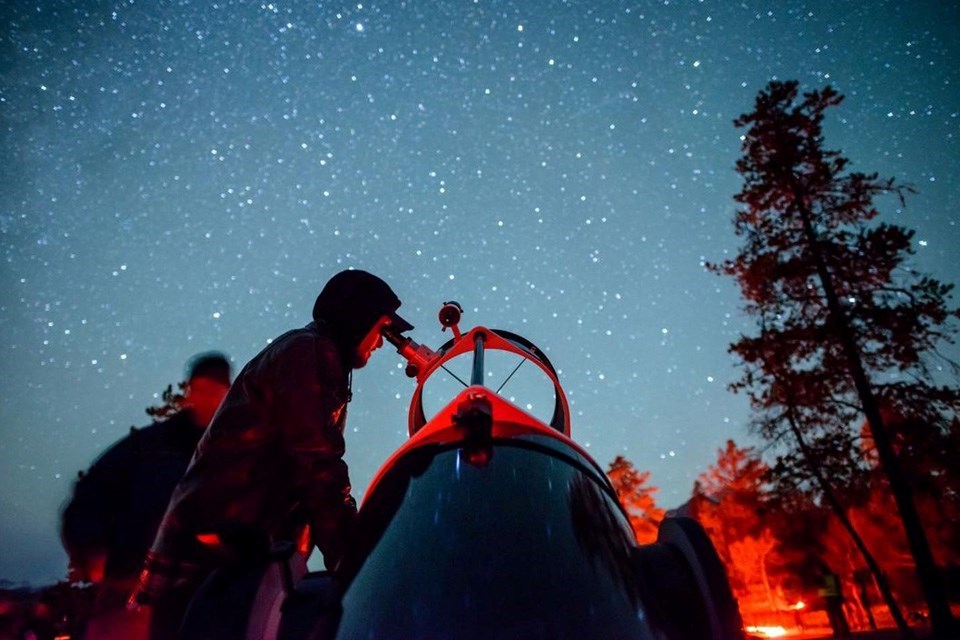It’s easy to love the dark sky and the Dark Sky Festival.
Two University of Alberta researchers took that as a starting point for a study on the benefits that people can get from their experiences and how much it changes them.
Professor of Environmental Science Dr. Glen Hvenegaard and Director of the Alberta Centre for Sustainable Rural Communities Clark Banack recently published “Visitor outcomes from dark sky tourism: a case study of the Jasper Dark Sky Festival” to delve deeper into that issue.
Dark sky tourism is a growing facet of rural development that works to counter how so many rural areas are struggling economically and in other respects, Hvenegaard said.
“All those struggles that rural communities have… one thing they do have are dark skies, because there's limited light pollution in these remote places,” he said.
With their combined focuses on ecotourism and rural development, they surveyed participants during last year’s festival with the cooperation of Tourism Jasper. Beyond the usual demographic questions of who they were and how far away did they come from, the researchers asked about satisfaction levels, learning outcomes, and attitude and behaviour changes.
They also interviewed all the stakeholders including the Royal Astronomical Society, the Telus World of Science and members of the local community to learn what they thought was working well and what wasn’t.
The results were a bit surprising.
The respondents reported very positive attitudes about protecting dark skies, but only 42 per cent planned to change in any way to do so.
At issue is light pollution. The problem has various negative environmental effects, not the least of which is how it affects wildlife’s reproductive, predatory and survival behaviours. For humans, it hinders our natural rhythms and disrupts our sleep, among other health effects.
“It's not just a hypothetical impact; it affects people in a real way,” Hvenegaard said.
There was also $7 billion of wasted energy from light pollution across the globe. Up to 80 per cent of the world’s population is unable to see dark sky features like stars and meteors.
Hvenegaard argued that if people can see the Milky Way galaxy in all its glory in a dark sky preserve, then that may turn them on to dark sky protection.
The opportunities to make changes that help combat light pollution and enhance dark skies are there. What the study determined is that people’s impulse to do so doesn’t match it, and it’s this that gives the festival’s organizers some room to grow.
“I think they’ve got some work to do. If they actually make a contribution to dark skies, it would be helpful to change both the organizers’ behaviours as well as the visitors’ behaviours,” Hvenegaard said.
“It's all great to have a satisfying experience and to learn something new. I think that's a laudable goal. But if we really are worried about dark skies, we would want to have them willing to change their behaviour in some way to promote dark skies wherever they're coming from.”
In an email to the Fitzhugh, Tourism Jasper CEO Tyler Riopel offered his appreciation for the work and insights that the study provided.
“[The] findings underscore some of the reasons why events like the Jasper Dark Sky Festival are important. Each year, we work closely with organizations and experts from around the world to educate people on the importance of dark sky preservation.”



